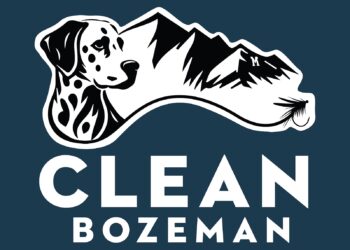By Margo Magnant EBS Contributor
Big Sky Chamber of Commerce Membership Director Margo Magnant represented Big Sky at the first annual Mountain Ventures Summit Feb. 2-4, in Telluride, Colorado. The three-day “unconference” attracted more than 100 individuals interested in joining a conversation about how to create sustainable entrepreneurial ecosystems in mountain towns and promote faster and more reliable progress in our communities. Inspired upon her return, Magnant reported the following from the summit.
TELLURIDE, Colo. – The Mountain Ventures Summit was, hands down, one of the coolest things I’ve been a part of in my professional career.
The attendees represented a diverse group of backgrounds and consisted of mayors, chamber representatives, entrepreneurs, venture capitalists, ski resort personnel and, mostly, people working to connect visionaries with funding and shared workplaces to diversify the economies of mountain towns throughout the western U.S.
Although we could be seen as competitors in terms of attracting vacationers, we’re also each other’s greatest allies. As Scott McGuire, president of The Mountain Lab in Mammoth Lakes, California, said at the beginning of the conference, when mountain towns work together, “all ships rise with the tide.”
Most of the conversations focused on the concept of fostering healthy “entrepreneurial ecosystems,” which translates as diversifying mountain town economies and creating jobs that are less dependent on weather and tourism.
In regards to Big Sky, I walked away from the experience feeling as if we still very much have our training wheels on—when compared to communities such as Jackson, Telluride and Mammoth Lakes—but we’re also fortunate to have these communities to look to as we try to guide our growth in a smart, sustainable manner that supports a culture of commitment to our unique town.
I think it’s very important that we keep thinking in a visionary and long-term way. All of the communities represented at the summit have housing problems. Fostering a healthy entrepreneurial ecosystem in Big Sky would ultimately aid in the efforts to address the housing issue. Very few jobs in our community currently allow for home ownership in Big Sky, and these concepts would seek to change that by creating upward career mobility that will lead to reinvestment in the community itself.
If we find a way to support those individuals who may be here to ski the Big Couloir, but are also looking to take an idea from concept to fruition, we could start creating partnerships that would ultimately strengthen our strong-rooted community.
One final note is that the conference really got me thinking about incorporation in a way that I hadn’t before. Virtually all of the success stories from our fellow mountain communities relied on some level of public/private partnership.
When you look at the Tahoe area of California and Nevada, you see two states, five counties and 14 downhill ski areas working together as one, so surely we can find a way to better connect our mountain, meadow and canyon villages for the sake of our community’s future.
“In mountain towns, you either have two jobs, or two houses,” said Kathryn Kemp Guylay from Sun Valley, Idaho.
Our community can only benefit by bridging the gap between these two camps of important locals.














